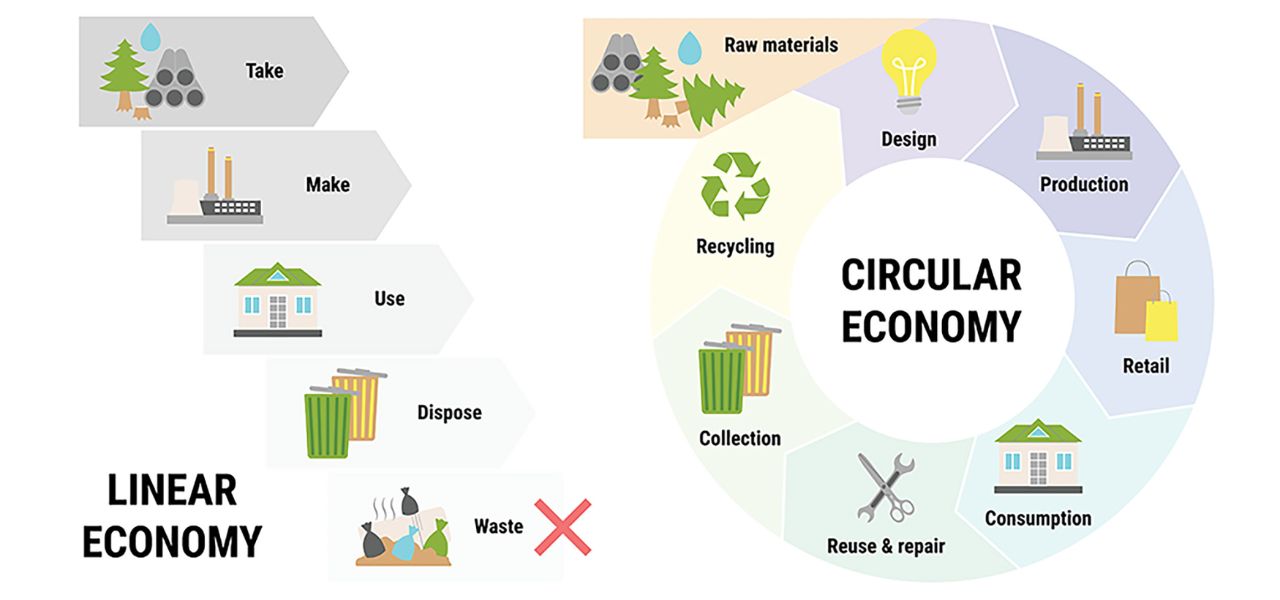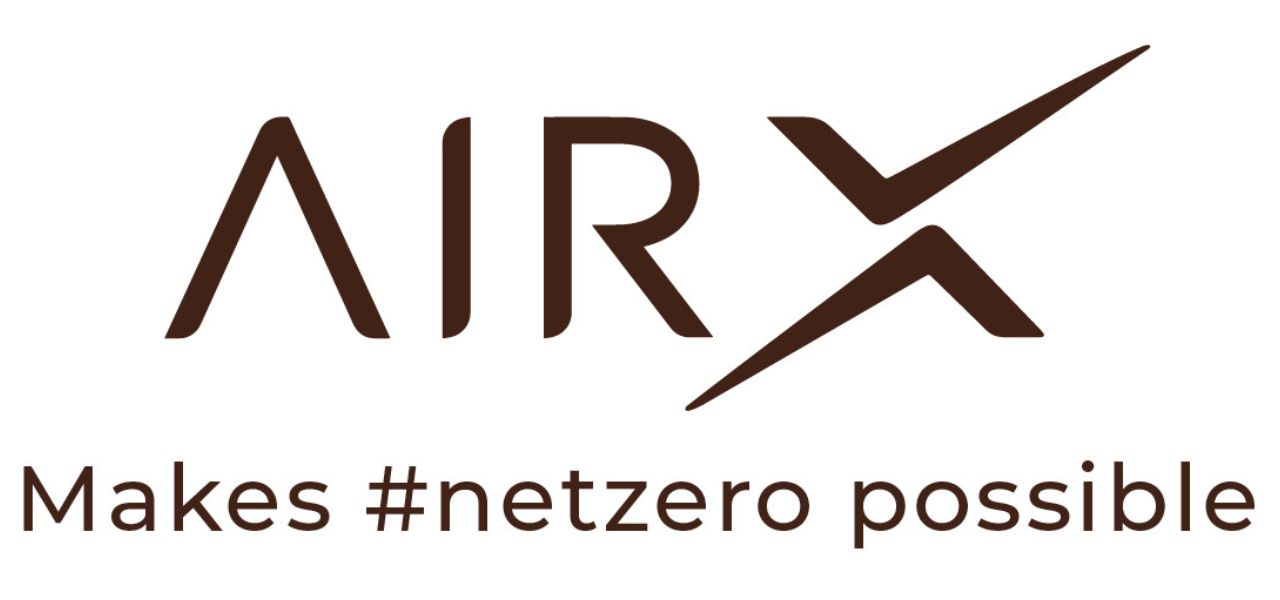The Circular Economy A New Pathway to Sustainable Growth

The circular economy is a system that aims to reduce waste and promote sustainable growth. It is based on the principles of using resources efficiently, keeping materials in use for as long as possible, and reducing environmental impact. As businesses and individuals become more aware of the importance of sustainability, the circular economy has gained momentum as a new pathway to sustainable growth.
In this blog, we will explore the circular economy in depth, including what it is, why it matters, and some successful examples of its implementation. Join us as we delve into the world of the circular economy.
Definition of the circular economy
The circular economy is a concept that has gained increasing importance in recent years as a means to achieve more sustainable and equitable growth. The circular economy aims to create a closed loop system where resources are used, reused, and recycled rather than discarded.
This approach aims to reduce waste, conserve resources, and create new economic opportunities. In contrast to the traditional linear economy, where goods are produced, used, and then disposed of, the circular economy aims to keep resources in use for as long as possible, and minimize waste.
The circular economy is based on three core principles: reduce, reuse, and recycle. The first principle, reduce, involves reducing waste and minimizing the use of resources. The second principle, reuse, involves extending the life of products and materials by repairing, refurbishing, or repurposing them. The third principle, recycle, involves collecting and reprocessing materials to create new products.
One of the key benefits of the circular economy is that it creates new economic opportunities. By keeping resources in use, the circular economy creates jobs and stimulates economic growth. Additionally, it can help businesses save money by reducing waste and conserving resources.
Implementing the circular economy requires a shift in mindset and a systemic approach to design, production, and consumption. It involves rethinking the way products are designed, manufactured, and used. It also requires collaboration and innovation across industries, governments, and communities.
In order to achieve a circular economy, businesses must take a holistic approach to their operations. This includes designing products that are durable and easy to repair, using recycled and recyclable materials, and implementing closed-loop supply chains. By adopting circular economy principles, businesses can reduce their environmental impact, create new economic opportunities, and contribute to a more sustainable future.
The need for the circular economy
The circular economy is a term used to describe a system where resources are kept in use for as long as possible, extracting the maximum value from them before recovering and regenerating them. This approach stands in contrast to the traditional linear economy, where products are made, used, and then disposed of after they are no longer useful. The need for the circular economy is becoming increasingly pressing, as the global population continues to grow, and the planet's resources become more scarce.

The circular economy is not only beneficial for the environment but also has economic benefits, such as the creation of new jobs and the reduction of waste disposal costs. For businesses, the circular economy can lead to greater efficiency and cost savings by reducing the need for virgin resources, cutting down on waste, and promoting the use of renewable energy sources.
One of the most significant challenges of the circular economy is changing mindsets and behaviors, as it requires a fundamental shift in the way we think about and use resources. It also requires businesses to adopt new practices and business models, which can be challenging. However, many companies have already implemented circular economy principles, and there are numerous success stories across different industries.
For example, in the fashion industry, brands like Patagonia and Stella McCartney have adopted circular economy principles by using recycled and repurposed materials, reducing waste, and creating closed-loop production systems. In the technology industry, companies like Dell have implemented a circular supply chain model, where they take back used products and materials to use in the production of new ones. The food industry is also adopting circular economy practices by reducing food waste and using by-products to create new products.
To adopt the circular economy principles, businesses need to start with an assessment of their current practices and identify areas where they can implement circular practices. These could include designing products with recyclable or repurposable materials, using renewable energy sources, and implementing closed-loop production systems. By adopting the circular economy, businesses can not only reduce their environmental impact but also create a more sustainable future for themselves and the planet.
Circular Economy in Practice
The circular economy is an innovative approach to economic growth that prioritizes sustainability by keeping materials in use for as long as possible. Many companies are embracing the circular economy as a way to reduce waste, lower costs, and promote a more sustainable future.
One company at the forefront of this movement is AirX, a manufacturer of plant-based plastic made from by-product agriculture. This material captures carbon during the growth process, making it carbon negative. AirX's circular economy approach involves using this material in a closed-loop system, where it is continually recycled and reused, rather than being disposed of after a single use.

AirX's plant-based plastic is an excellent example of the circular economy in practice. By using this material, businesses can reduce their reliance on traditional plastics, which are derived from non-renewable resources and often end up in landfills or the ocean. Instead, they can use a more sustainable alternative that is derived from renewable resources and can be continually recycled and reused.
AirX's circular economy approach has already been embraced by several businesses, including Paula’s Choice and Uniqlo. These companies have used products made from AirX's plant-based plastic to show their commitment to reducing environmental impact.
In addition to AirX, there are many other examples of the circular economy in practice across different industries. For example, in the fashion industry, companies such as Patagonia and H&M are implementing circular economy principles by using recycled materials in their clothing and offering repair services to extend the lifespan of their products. In the technology industry, companies such as Dell are implementing circular economy principles by using recycled materials in their products and offering a take-back program for their electronics.
To adopt circular economy practices, businesses can start by rethinking their supply chains and finding ways to reduce waste and keep materials in use for as long as possible. This may involve using materials like plant-based plastic, designing products for durability and recyclability.
Overall, the circular economy offers a new pathway to sustainable growth that benefits both businesses and the environment. By embracing circular economy principles and finding innovative solutions like AirX's plant-based plastic, businesses can reduce waste, lower costs, and promote a more sustainable future.
>>> Learn more: 3 Inspiring Circular Economy Examples
Contact us
AirX is the world's first carbon-negative bio-material made from coffee grounds.
We specialize in producing bio-based composites using recycled carbohydrates derived from by-products such as coffee grounds, coconut husk, husk, and bamboo. Our goal is to promote sustainability through the use of eco-friendly materials.
We are always here to help and provide the best service possible. If you have any questions or would like to receive advice and feedback directly from our sales staff, please do not hesitate to contact us. You can reach us through:
- Whatsapp: +84 969 742 950
- Email: [email protected]
We look forward to hearing from you!

